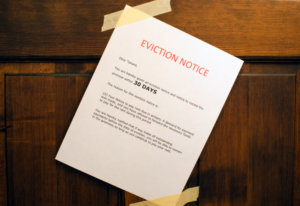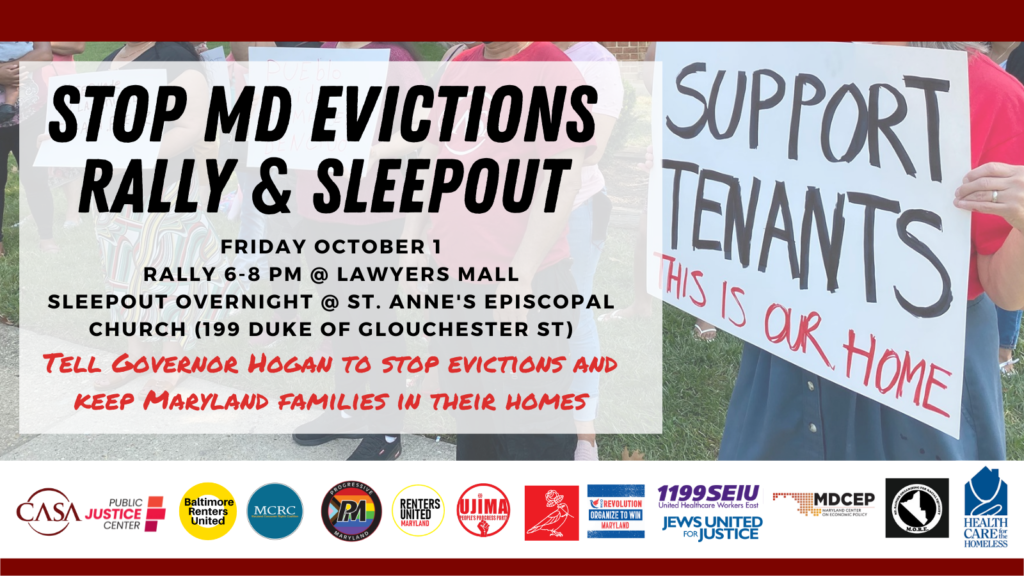Maryland Renters Still Need Eviction Protection and Assistance
Hundred of thousands of Marylanders are at risk for losing their housing as a national ban on evictions was recently overturned by the Supreme Court. The ruling stated that the Centers for Disease Control and Prevention does not have authority to ban evictions nationwide, thus putting pressure on Congress to take action to save millions of Americans from homelessness. With Maryland’s eviction moratorium having expired on August 15, renters and advocates have been pushing for Governor Hogan to reinstate the state eviction moratorium until all relief funds are exhausted and reach the families who need them. According to a recent report, Maryland had only spent 25% of the rental assistance funds that it received from the federal government this year, as of September 9.
Even before the pandemic, housing instability was a major problem in our state. As hardworking Marylanders know firsthand, wages just haven’t kept up with skyrocketing rent and housing prices. Now almost one-third of households in our state spend more than 30% of their income just to cover housing costs. This makes it hard to cover the costs of other necessities like food, school supplies, and medication.
Here in Maryland:
- 13% of renters are behind in their rental with payments
- 29% of renters who have experienced a lost or reduction in job-related income are behind in their rental payments
As additional federal assistance reaching families, including the rental assistance and the advance Child Tax Credit payments that began rolling out in mid July, the number of Marylanders reporting that they are behind on their rent is beginning to decrease:
- 13% of Black renters are behind on their rent, down from 21% from a few weeks ago
- 15% of renters with children say their household is behind on their rent, down from 23% from a few weeks ago.
Preliminary research has found links between eviction moratoriums and slower spread of COVID-19, and shown that cases of the virus began to increase nationwide as states’ eviction bans were lifted. Moreover, research suggests that communities with the highest eviction filing rates during the pandemic tend to have the lowest vaccination rates for COVID-19. This is problematic as it suggests that the populations most at risk for eviction could potentially become infected with the virus, thereby increasing the incidence of infections as well as deaths from COVID-19. This is a serious health disparity as all previous reports indicated that people of color are the most at risk for evictions and are also the least likely to have received the COVID-19 vaccination.
A fair and enduring recovery requires decisive action to keep Marylanders in their homes. That means that any recovery legislation coming out of Congress must take continued steps to ensure that people can remain in their homes now and address long-term needs for affordable housing by substantially increasing funding for housing vouchers.
Recent data and reports indicate that eviction protections and extra payments to families are having a positive impact in the communities, but the funds haven’t yet reached everyone who needs them. In the meantime, Governor Hogan must act now to protect the most vulnerable Marylanders from losing their homes. Failure to act now will put hundreds of thousands of Marylanders at risk for losing their homes, which could increase the incidence of COVID-19 infections and deaths across the state.


